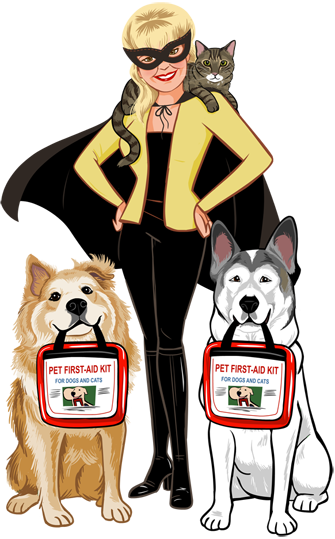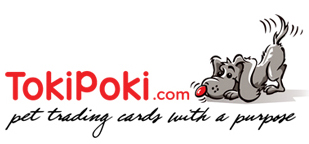 Visually and hearing impaired doesn’t stop this dog from having one heck of a fun-filled life! He has two daddies who adore him, tons of fans and a pack of canines all his own. Learn about the Adventures of Chatopotomus on his very own Facebook page!
Visually and hearing impaired doesn’t stop this dog from having one heck of a fun-filled life! He has two daddies who adore him, tons of fans and a pack of canines all his own. Learn about the Adventures of Chatopotomus on his very own Facebook page!
WHAT ARE BIRTH DEFECTS?
To a certain degree, that is an open discussion as to how each of us see our pets and life itself. A limitation to one is a challenge to another, and a challenge that can be overcome with love and perseverance. A birth defect however, is defined as a congenital (meaning structural) abnormality but it can also be an emotional one. David Rogers, as part of MB Jungle’s efforts to bring awareness to the interactive role humans play in our pet’s physical birth defects as well as their mental health, marks September 13th as Pet Birth Defect Awareness Day so that we can begin this conversation and make a lasting positive impact for future generations.
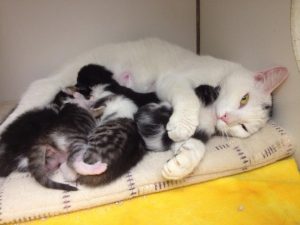
WHAT CAUSES BIRTH DEFECTS?
Genetics. What mom or dad or even grand pappy canine or grandma feline had, may be passed down to several generations of puppies and kittens. This can be the piercing green eyes, fabulous silky coat or less fortunate…entropion, a propensity for bloat or ventricular hypertrophy as examples.
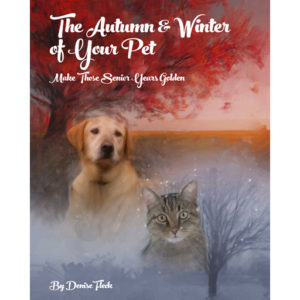 Breed-related Conditions. Here is a brief excerpt from my book, “The Autumn & Winter of Your Pet: Make Those Senior Years Golden”…
Breed-related Conditions. Here is a brief excerpt from my book, “The Autumn & Winter of Your Pet: Make Those Senior Years Golden”…
- Bichon Frises, Border Terriers and Cocker Spaniels are prone to cataracts while a different eye disease, Entropion, is more common in Sharpeis.
- Dachshunds and Basset Hounds are at risk for spinal injuries while most working and herding breeds are more likely to experience Hip Dysplasia or Cruciate Ligament Ruptures to their knee joints.
- Doberman Pinschers, Setters, Rottweilers are most inclined to get Von Willebrand Disease, where blood has difficulty clotting.
- Your Manx could develop Spina Bifida, damage to the spinal nerves, due to genetics of his shortened tail.
- Ragdolls are susceptible to a heart condition known as hypertrophic cardiomyopathy.
- Abyssinians may become anemic or develop loose knee caps (patellar luxation), while…
- Scottish Fold cats may develop a painful and disabling condition of the joints.
The American Kennel Club’s Canine Health Foundation has a more complete list to help you learn about which conditions your canine best friend is most predisposed to while University of Glasgow (via www.dr-addie.com) keeps a comprehensive listing by cat breed. None of these conditions are guaranteed to occur, but it’s helpful to know what your breed is most at risk for and maybe then you can find ways to prevent or manage it.
Infection, toxins or trauma. to any one of the mother’s many systems including extreme body temperature, infections or exposure to chemicals or drugs can result in birth defects in her young. These abnormalities may be noticed at birth or shortly thereafter. Some are quite obvious: cleft palates, umbilical hernia, inguinal hernia and limb deformities while others may require veterinary examination (heart murmur for instance). Still others, such as retained testicles, liver shunts or hip dysplasia, may not be apparent until the pet matures. All newborn puppies and kittens MUST be examined by a veterinary professional soon after book to be evaluated and discuss treatment options.
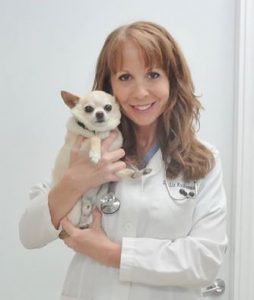
HOW CAN WE HELP?
Treatments for many common pet birth defects are now available, but I also hope to remind my fellow humans to not judge an animal by anything you consider out of the norm and carry on that outlook towards other people as well. We are all more than just the sum of our parts and shouldn’t be made to feel less because of an attribute that differs from the majority. These are our own personal challenges but also the things that make us unique and help us to see life from our individual perspective. This is just one of many things that we can learn from animals – not to carry around baggage but to be in the moment living each moment to the fullest letting nothing hold us back. Please consider this when bringing a four, or three-legged, loved one into your family. Accommodations may be needed to keep your sightless, hearing-impaired pooch safe, but his or her lifetime as well as your own, can be multiplied in happy moments for you doing so!
Cleft palate: Puppies and kittens with cleft palates should be fed with a long-nippled bottle which will force the food beyond the cleft and into the back of the throat. Feeding tubes may be needed for severe cases but proper nutrition is a must. At about 3-4 months of age, surgery can be performed and birth defect, no more!
Limb Deformities: Since newborns don’t walk, this may be an unknown until puppies and kittens begin wobbling about. Proper nursing is a must for healthy development. Surgery can assist some pets but depending on the situation, padded braces, splints or wheels may be needed to help dogs and cats become mobile. The good thing again is that they don’t dwell on their differences, but embrace their lives thanks to amazing humans who have created such devices. www.Gingerlead.com and www.handicappedpets.com are just two of many wonderful companies that help you help your pet and make their life furtastic!
Deformities of the eyes, nose, palate, heart defects, hernias, retained testicles, liver shunts, etc. require veterinary assessment and treatment and their quality of life will vary, but with a loving human by their side, it can be awesome no matter the length!
Of utmost importance is finding a veterinarian you trust and doing as suggested. For pets with challenges and those without, proper nutrition, regular check-ups, fresh water, high quality protein and other minerals as well as proper sanitation, deworming and disease/parasite prevention is a must. Socialization, fresh air and exercise does a body good no matter if its feline, canine or human. Together you and your best friend can overcome challenges and delight in all that is good in your world!
Mental Illness: Many cultures over time have thought that satanic possession or religious punishment was a reason for mental illness. Hippocrates believed that mental illness could be helped by improving one’s environment and began treating psychiatric patients with herbs. Charles Darwin professed that animals too could endure forms of mental illness similar to humans and research is now being done worldwide. In the early 1980s, Nicholas Dodman noticed a dog in his clinic that appeared anxious. He tried out an anti-anxiety drug on the canine and the improvement was extraordinary. In more recent years, dogs have been trained to lie motionless so that an MRI scanner can take pictures of their brain and the results are concluding that “dogs are people too!” The more we learn how similar illnesses affect them, the more we can do to help, but…we must also realize that we are responsible for some of the discomfort they endure: exposure to toxins, over vaccination, improper nutrition, poor breeding, lack of socialization and abuse can cause more than physical harm. Learn proper pet parenting, become a team with your veterinarian, groomer, obedience trainer and professional pet sitter, love, nurture and treat your pet as a family member for their lifetime!
Wouldn’t it be just the best if we could think of defects as gifts?! Overcoming challenges (not necessarily solving but making lemonade out of lemons) brings out new insights, kindness, accomplishments that we didn’t know we had in us! Some abnormalities can be prevented but others were meant to be to teach us acceptance and motivate us onward. Please take care in never leeting an animal or person think they are less. Each of us is a once in a lifetime special creation!
Catch the VLOG on this topic: https://youtu.be/VSWcQfammSA






